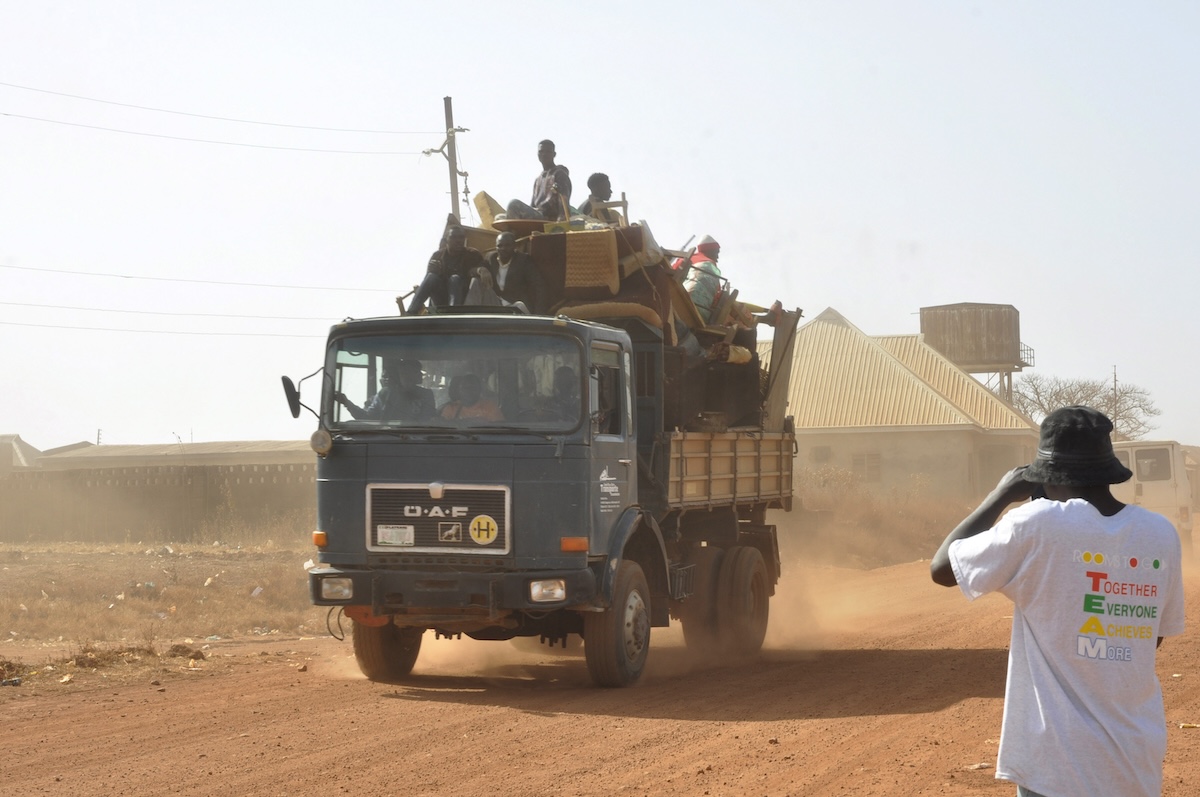Last fall and into January so far, the big three U.S. newspapers—the New York Times, the Washington Post, and the Wall Street Journal—have not covered new massacres of Christians in northern Nigeria. Some European publications have mentioned the deaths and linked them to … climate change.
The Associated Press on Dec. 26 told of terror on Christmas weekend: attackers burned down most of the houses in 17 villages containing numerous Christians and killed at least 140 farmers. Nigeria armed forces, now under the authority of a Muslim president and vice president, are supposed to protect all villagers, but youth leader Sunday Dawum said they did not arrive in his village—where at least 27 people including his brother died—for 13 hours.
Isa Sanusi, director of Amnesty International’s Nigeria office, told AP, “The brazen failure of the authorities to protect the people of Nigeria is gradually becoming the norm.” But the New York Times search engine since the end of summer shows only two stories about Nigeria: one of Nigerian army drones erratically dropping bombs, and one about Shell selling its oil business within Nigeria for $1.3 billion amid charges of environmental damage.
The Washington Post search engine shows one story about the “bombing mishap” but nothing about the recent killings. The Wall Street Journal had nothing. I also checked the New York Daily News and the Los Angeles Times: nada. The Boston Globe at least ran the AP account. Some British publications did more: in London, a Daily Express headlineroared, “Christmas murder spree leaves at least 140 Christians killed in horror massacre.”
In the U.S., specialized publications such as Christianity Today paid attention, with a story by Jayson Casper including vivid detail:
Grace Godwin was preparing Christmas Eve dinner when her husband burst in with news from the neighboring village, ordering her and the children into the fields. Rebecca Maska similarly took cover but was shot and bled for three hours until help arrived, while her son had his hand chopped off with a machete before escaping.
When reports did cover the who, what, when, and where, only some discussed the why. The AP account connected the killings to “the sectarian division between Christians and Muslims in Africa’s most populous nation.” Reuters, however, downplayed the religious difference, stating that “experts and politicians” say “climate change” is “pushing farmers and herders into conflict.”
Maybe, but one group of experts, the Nigerian-based InterSociety (International Society for Civil Liberties and the Rule of Law), last April reported that 5,000 Nigerians in 2022 were killed “for being Christians,” and the total since 2009 is more than 52,000. Lela Gilbert of the Hudson Institute’s Center for Religious Freedom noted that, with media paying attention to Russia vs. Ukraine (and now Israel vs. Gaza), “often our Western news reports overlook the ever-increasing bloodshed in Africa, even as radical Islamists—energized by the Islamic State—continue to ignite deadly infernos.”
One politician, Irish president Michael D. Higgins, said after a 2022 massacre that he opposed “any attempt to scapegoat pastoral peoples who are among the foremost victims of the consequences of climate change.” Nigerian Bishop Jude Ayodeji Arogundade said Higgins’ comments were “incorrect and far-fetched. … Alluding to some form of politics of climate change in our situation is completely inappropriate.” Irish missionary Kathleen McGarvey said Higgins’ words showed “the ignorance of our leaders,” and a Higgins spokesman walked back the president’s remarks.
Going further back, a typical U.S. major media approach has been one summarized in a 2019 Los Angeles Times headline: “Guns, religion and climate change intensify Nigeria’s deadly farmer-herder clashes.” The story vividly began with teens and twenty-somethings walking out of a church gathering—and “gunmen waiting outside opened fire.” Four people died, but the rest of the story emphasizes the herder-farmer clash rather than Muslim-Christian tension.
The staging of the massacre this past Christmas, when covered at all, has led to pushback against the “global warming” thesis. In the Christianity Today article previously noted, the headline read: “Christmas Massacres Challenge Secular Explanations of Nigeria Conflict.” In London, the Daily Express followed up its Dec. 26 story on the Christmas killing with one on Dec. 30 reporting, “Fury as massacre of almost 200 Christians is partially blamed on climate change.” In the article, Roman Catholic priest Benedict Kiely “voiced his anger that major news outlets haven’t described the situation in Nigeria as a genocide against Christians.”
The Biden administration in November 2021 took Nigeria off its list of countries where religious freedom is endangered. In a European Conservative article, Fr. Kiely quotes a young Nigerian doctor who was “shocked” at the absence of “marches or protests about the mass slaughter of Nigerian Christians, a crisis that has been steadily growing in the last ten years. ‘Do these black lives matter?’ she asked.”
